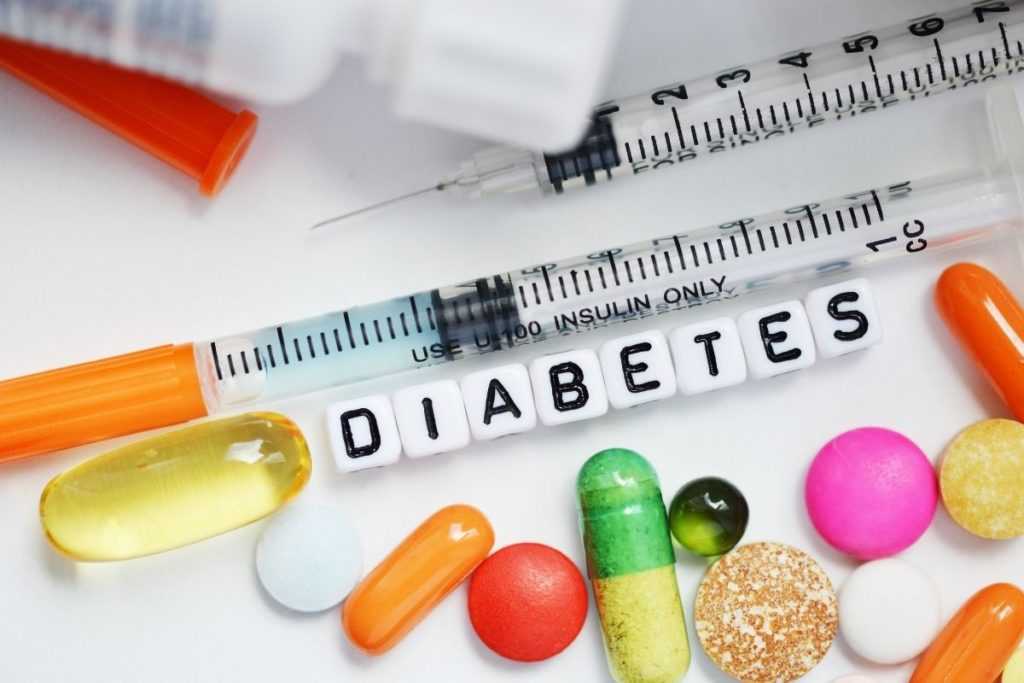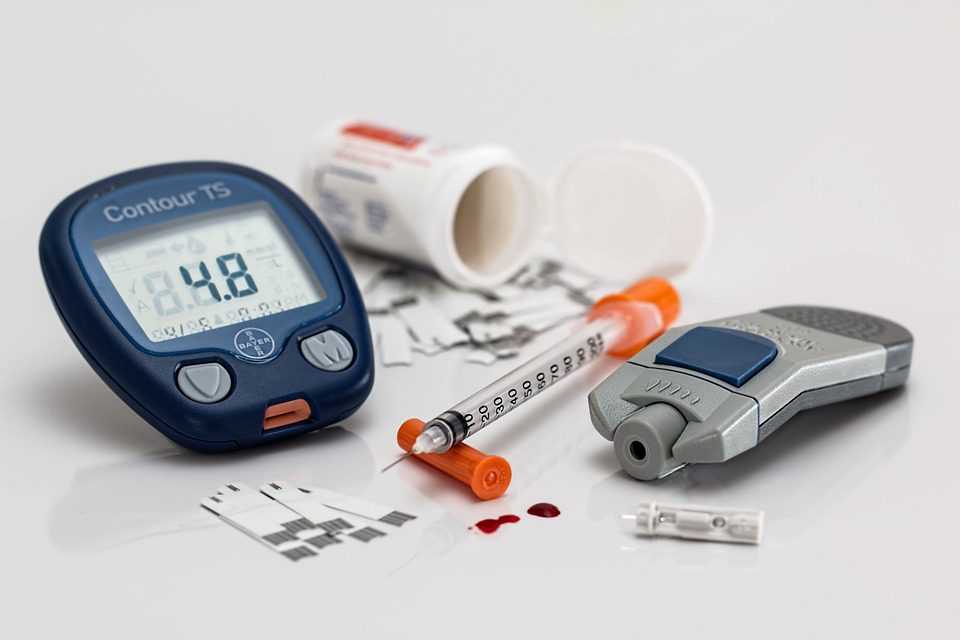Are you or your loved ones fighting diabetes? Do you want to know this disorder in detail? You know to manage any disease or disorder you should under it properly, so that you can take care of yourself according to that.
Medical research has always set a new precedent with every passing day. Each day, we uncover new research and realities related to health and our lifestyles. While Pakistanis are a big fan of food in general, we are also prone to developing health-related disorders at a faster pace when compared to other Asian countries.
In recent years, the rate of diabetes spread within Pakistan (7th highest number of diabetics in the world) has been alarming and reflects the growing need of health awareness needed to caution people of the associated negative consequences –medical and otherwise.


What is Diabetes?
Diabetes or Diabetes Mellitus is characterized as a disorder in which the body is incapable of breaking down glucose in the bloodstream and hence results in a high blood sugar level for the patient. It also refers to the inability of the body’s cells to absorb glucose, leading to accumulation in the blood plasma. There are two types of diabetes, Type 1 and Type 2.
What Are The Causes and Types of Diabetes?
Our pancreas contains specific cells which are responsible for producing insulin. They are known as the Islets of Langerhans. They produce the hormones insulin (beta cells) and glucagon (alpha cells). Insulin is responsible for the breakdown of sugar in the bloodstream into storage-friendly form, whereas, glucagon converts the stored sugar into usable or metabolic form. In simpler words, the hormone insulin signals the cells of the body to whether to absorb sugar or not.
Type 1 Diabetes:
Type 1 diabetes is an example of autoimmune disease because the body’s immune system attacks the pancreas of the body viewing them to be foreign part of the body. Therefore, it is insulin-dependent diabetes and develops in children and teenagers and in a few rare cases, in adults.
In type 1 diabetes, the insulin production is sacrificed due to the destruction of the islets of Langerhans and therefore the cells of the body die due to sugar deficiency. The cells in the human body require sugar for metabolism in order to produce energy for driving its biochemical activities. In the absence of sugar, the cells are unable to produce energy and eventually die out.
The blood sugar levels keep rising as the sugar is not being absorbed and is accumulated in the blood plasma. In cases where the blood sugar level is not normalized, it can lead to the blindness, stroke, amputations, heart failure and kidney failure. Refer to the illustration by Marham providing an overview of the repercussions of high blood sugar levels.
Also See: 7 Best Diabetologists in Lahore
Type 2 Diabetes:
It was more commonly referred to as the adult-onset form of diabetes where it increasingly used to terrorize only the grown-ups. In recent years, diabetes type 2 has taken up an increasing number of diagnosis in children as well.
All cells in the human body need glucose or sugars to run because once broken down, sugars produce a large amount of energy. However, the amount of sugars running wild in the blood needs to be controlled and if it goes out of bounds, it can start damaging the cells and tissues of the human body and be called as diabetes.
It has two forms. Type 2 diabetes specifically occurs when the hormone responsible for storing glucose in the human body, insulin, is not recognized by the cells anymore. As a result, the insulin-producing cells have to work more to produce a greater amount and cause the storage of extra glucose. Due to over-exertion, the insulin-producing cells eventually begin to fail and wear out.
With the increasing rate of obesity (especially in children), the rate of type 2 diabetes occurrence has also gone up and therefore the mortality associated with it. Therefore, it is about time we prioritized life over doodh-jalebis. There are simple ways we can revolutionize and clean our bodies of intoxicants and help ensure a healthy, disease-free life.
Association of Diabetes with Retinopathy and Stress:
Diabetes and Blindness:
Blindness due to diabetes is the leading cause of vision loss in most of the populations across the world, including Pakistan. Vision impairment and blindness due to diabetes are referred to as diabetic retinopathy in medical terminology. Retinopathy is caused by increased levels of blood sugar leading to abnormal development of new blood vessels in the eye’s retina.
Patients who are conscious about the glycaemic index (measures quantitatively the effect of sugar contained in the foods on the blood sugar levels) of the food they consume portray reduction in the development or progression of diabetic retinopathy.
Examples of food with a low GI include:
- Brown rice
- Wholegrain bread
- Bran cereal or oatmeal
- Sweet potatoes
- Frozen grapes
- Nuts
- Veggie sticks
- Milk or tomato juice
- Beans and lentils
- Black and white chickpeas
Diabetes and Stress:
In conventional research of at least one decade ago, it was strongly believed that the genetic make-up of any person determines the diseases we are prone to developing. However, the advancement in research dictates that genes do not influence the growth and development of any person without the possible influence of the environment. Therefore, factors such as physical inactivity, nutrition, and stressful environment also play a crucial role.
When the body is under stress, a hormone named cortisol is released in order to prepare the body for a ‘fight or flight’ response. Cortisol prevents the cells from absorbing the insulin and instead promotes the blood sugar levels for the required energy in order to fight off the stress.
However, if there is lack of ‘flight’ or physical activity to use the produced amount of energy or metabolize the abundant amount of glucose, the body may be triggered to develop diabetes type 2 inconsistently stressed patients. Regular production of cortisol and insulin resistance in the body may induce the beta cells to produce increased levels of insulin to prompt the desired response of breaking down glucose and therefore may lead to the wearing down of beta cells.
Although Type 1 is genetic in nature and cannot be prevented, however, important changes in our life can influence the prevention of Type 2 diabetes. You ask how?
Prevention of Type 2 Diabetes:
1. Control Your Weight:
The chances of developing Type 2 diabetes increase by seven-fold when you are over-weight. Adopt a balanced diet and measure your portions to prevent the accumulation of intoxicants. These chemical prompt your body into storing more fat.
2. Jog More, Sit Less:
Working your muscles promotes the body cells to remain active and improves their ability to absorb insulin and break-down glucose. Spending long hours at a desk job, watching television for long hours or staying inactive promotes Type 2 diabetes. Get the dusty boots out and start running!
3. Fine-tune Your Diet:
- Instead of highly-processed carbohydrates, use whole grains or whole-grain products.
- Use coffee, water or tea instead of sugary/fizzy drinks.
- Choose good fats (liquid vegetable oils, nuts and seeds) over the bad fats (margarine’s, packaged baked goods and fried foods).
- Avoid processed meat and red meat and instead choose poultry or fish.
4. Quit Smoking:
People who smoke have 50% more chance of developing Type 2 Diabetes, with the chances being greater for heavy or chain smokers.
Start caring about your health and prioritize your health to live a happy and healthy life. Whenever you face any health issue, do not hesitate in asking a FREE question for a prompt response from the doctors, anonymously. Find the Best Doctors For Diabetes In Pakistan.
FAQs:
-
What is Diabetes?
Diabetes or diabetes mellitus is characterized as a disorder in which the body is incapable of breaking down glucose in the bloodstream and hence results in a high blood sugar level for the patient. It also refers to the inability of the body’s cells to absorb glucose, leading to accumulation in the blood plasma.
-
How many types of diabetes are there?
There are multiple types of diabetes; like juvenile diabetes, Type-I diabetes, Type-II diabetes, and gestational diabetes.
-
What are the causes of diabetes?
Type I diabetes is caused by the destruction of pancreatic cells that produce insulin due to autoimmune conditions, whereas Type II is caused by the non-responsive of body cells towards insulin.
-
Does stress affect diabetes?
Yes, stress is the major trigger for diabetes. And if you are diabetic, stress may affect your blood sugar levels.
-
Does diabetes cause blindness?
Yes, diabetes can cause blindness due to diabetic retinopathy.
Book an appointment now to seek professional help from the best child specialist in Pakistan. You can book an appointment with top doctors in Pakistan through Marham by calling the Marham helpline: 0311-1222398 or online booking facility through the website or Marham mobile app.
Can’t Find The App?
Android Users:
https://play.google.com/store/apps/details?id=controllers.marham.marhammed&hl=en
Drop a review for us at Playstore if you’ve had a good experience!
iPhone Users:
https://apps.apple.com/pk/app/marham-find-a-doctor/id1095243102
Stay Home. Stay Safe!
Few Most Popular Endocrinologists In Pakistan:





